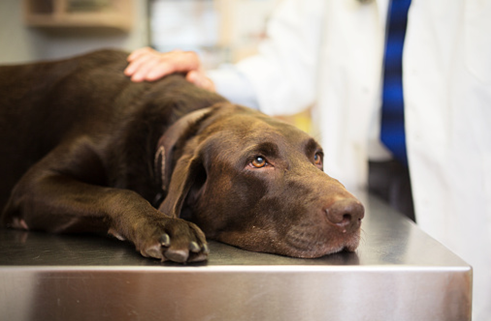
As a dog owner, it is very important you recognize the different common illness your dogs can have, so as to be able to take necessary measures and also be able to contact your veterinary doctor. There are several diseases of dogs, but the common ones are;
- Canine distemper
- Heartworm
- Kidney disease
- Kennel cough
- Leptospirosis
- Rabies
The most deadly and severe one is the Canine Parvovirus.
CANINE PARVOVIRUS
Canine Parvovirus is a very highly infectious disease that can be fatal. The virus attacks cells in a dog’s intestines and stops them from being able to absorb vital nutrients. This means that a dog or puppy will become very weak and dehydrated. Many dogs who are diagnosed with canine parvovirus and not well treated will eventually die. Parvovirus spreads through body fluids, including in a dog’s feces and vomit. It is very hardy and can survive in the environment. It can even contract parvovirus by sniffing another dog’s poo and it’s not uncommon for dogs to catch parvovirus when out for a walk. If your dog has come into contact with bedding, food and water bowls, carpet, or a kennel that a dog with parvovirus has touched, they can catch the virus. Canine parvovirus can also be spread on shoes, clothing and human hands.
Prevention
It is really important to protect your dog against this horrible disease by vaccinating them. Vaccination for parvovirus is routine and is one of the three main diseases that dogs are normally vaccinated against. Your dog should be given a vaccination card with the date of the jab and the date the next shot is due. This will be signed by your vet or registered veterinary nurse (RVN). Boosters are important for dogs to keep up to date with, but the time between these varies so check with your vet to see how often your dog should be vaccinated.
Treatment
There is no particular drug that can kill the virus but treatment for canine parvovirus is designed to support a dog’s immune system and help their body become strong enough to fight off the disease. Dogs and puppies with canine parvovirus need to be treated by a veterinary doctor and are likely to be hospitalized. They will be put on a drip and given intravenous fluids to stop them from becoming dehydrated. They may also be given drugs to help control vomiting, which also helps to prevent dehydration. When the dog has been infected with a secondary infection as a result of a weakened immune system, they may be given antibiotics.
